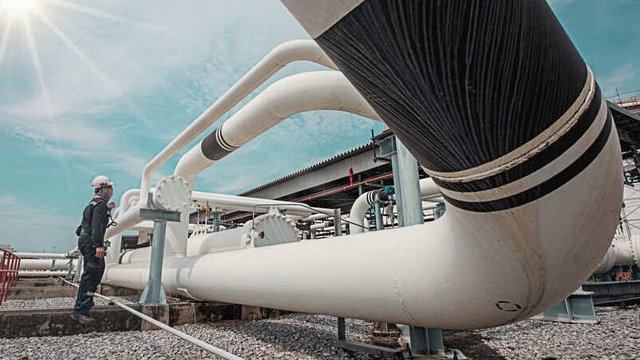
What is industrial maintenance?
Edited on May 21, 2025

In uncertain economic times, companies tend to focus on optimising efficiency and productivity. This is one of the reasons why industrial maintenance is becoming increasingly important.
Although it often goes unnoticed, this set of technical practices ensures that an organisation's machinery and equipment operate at peak performance, extending their useful life and preventing unexpected downtime that can lead to significant losses.
We will take a closer look at these processes in this post, but if you want to understand it in a more comprehensive way, the Mechanical Engineering degree at Universidad Europea is a good option. It will give you an in-depth understanding of industrial challenges and allow you to specialise in key areas such as automation, production and the maintenance of complex facilities.
Definition of industrial maintenance
Industrial maintenance is the set of technical and administrative actions aimed at ensuring the continuous and efficient operation of the equipment, facilities and systems used in production processes. Its main objective is to prevent failures, correct breakdowns and improve the performance of industrial assets.
It not only seeks to avoid unexpected downtime but also ensures that machinery operates under optimal conditions of safety, quality and sustainability. It is therefore very useful in terms of ESG compliance. It also plays a key role in production planning and increasing business competitiveness.
What is industrial maintenance for?
Although its most obvious function is to prevent failures, industrial maintenance has multiple strategic purposes within a company:
- Reducing costs: by anticipating failures, costly repairs are minimised and prolonged interruptions are avoided.
- Improving productivity: keeping equipment in good condition ensures a constant and efficient workflow.
- Increase safety: these practices also reduce occupational hazards arising from technical failures.
- Extend the useful life of assets: proper maintenance prevents premature wear and tear.
- Optimise production quality: keeping machinery in optimal condition ensures products with fewer defects.
For all these reasons, more and more companies are investing in predictive maintenance strategies, supported by technologies such as smart sensors and data analysis. Consequently, to be an industrial engineer, it is important to familiarise yourself with these advances.
Types of industrial maintenance
Industrial maintenance is classified into different types, depending on when it is carried out and its purpose. The most common are:
Corrective maintenance
This is applied when a failure or breakdown has already occurred. Although it is the most basic type, it can be costly and time-consuming, so it is only used when strictly necessary.
Preventive maintenance
This consists of carrying out regular inspections and tasks according to a pre-established schedule. Its aim is to prevent breakdowns before they occur, and it is commonly applied to equipment that is critical to the operation of the company.
Predictive maintenance
This is based on data analysis and the use of technologies such as sensors, vibration analysis or thermography to predict when a breakdown is likely to occur. It is one of the most advanced and efficient forms of maintenance.
Proactive maintenance
This goes one step further than predictive maintenance, analysing the root causes of failures to eliminate them permanently. It focuses on continuously improving the design, installation and use of equipment.
Some companies also adopt hybrid or adaptive models, combining several of these strategies to optimise their resources and adapt to changing conditions in the industrial environment.
Advantages of industrial maintenance
The implementation of a well-planned industrial maintenance system brings numerous operational, economic and strategic benefits, including:
- Reduced operating costs.
- Improved equipment availability and reliability.
- Greater customer satisfaction, as on-time delivery and product quality are guaranteed.
- Compliance with safety regulations and standards.
- Improved working environment, as emergency situations and tensions on the shop floor are avoided.
In short, a good maintenance strategy is key to the overall performance of any company, regardless of its size, sector or type of engineering.
How to work in industrial maintenance
Industrial maintenance is a cornerstone of modern industry, essential for ensuring efficiency, safety, and competitiveness. By preventing failures, optimising operations, and extending the lifespan of equipment, it supports the continuous improvement of production processes.
As technology continues to evolve, professionals trained in advanced maintenance techniques and smart systems will be increasingly in demand. For those looking to build a career in this dynamic field, pursuing an engineering degree with a focus on industrial systems—such as those offered by Universidad Europea—can provide the knowledge and skills needed to succeed.
If you are interested in the field of engineering applied to industrial systems, you can access the different engineering degrees offered by Universidad Europea and train for the job market that lies ahead.
Article published on May 5, 2025